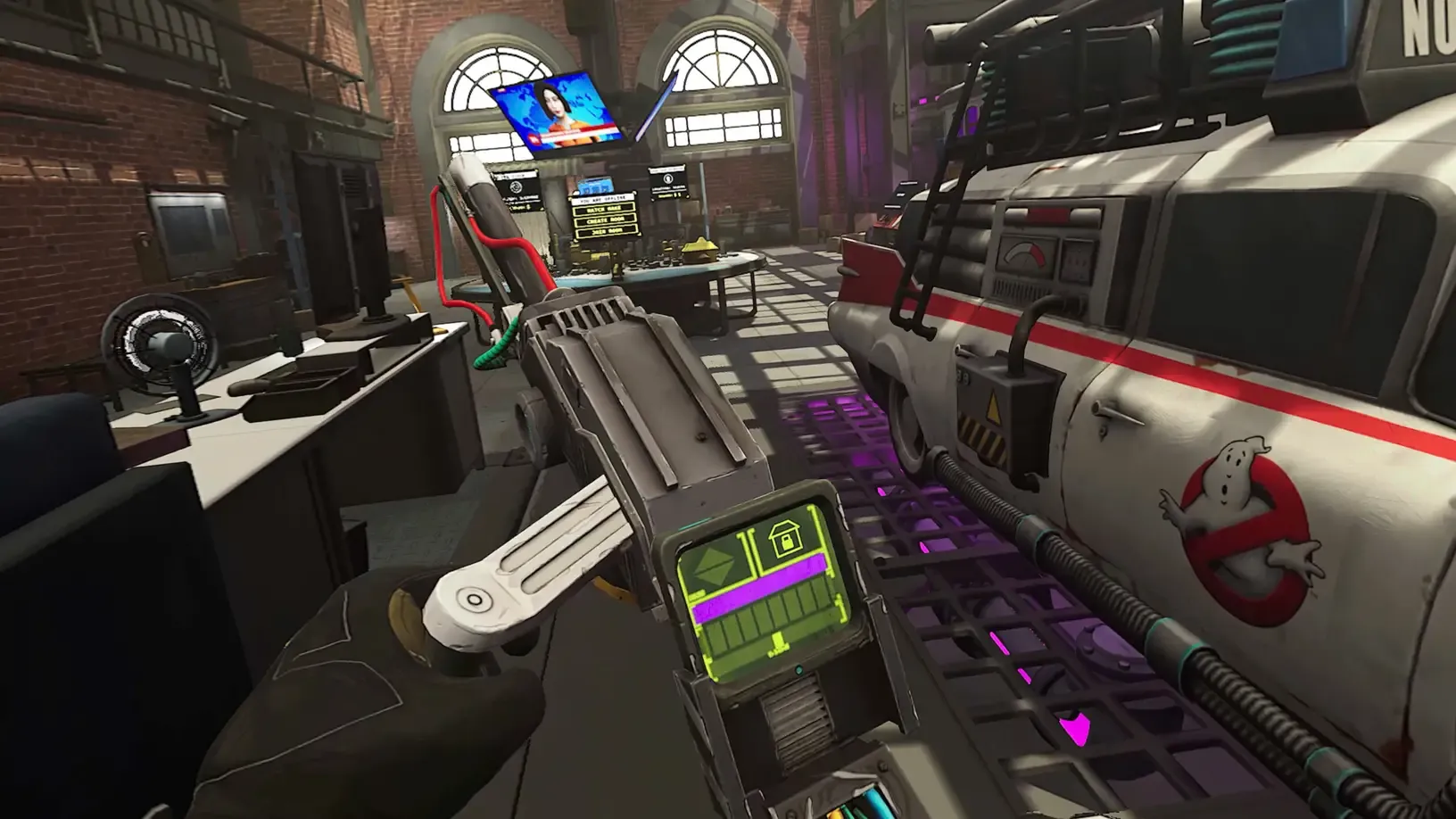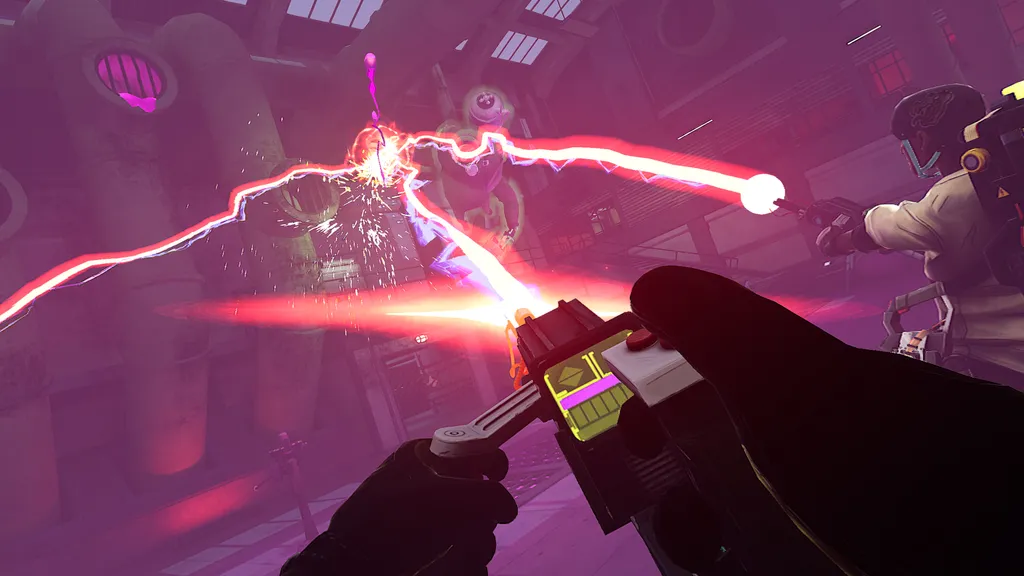Ghostbusters: Rise of the Ghost Lord releases next month, but how is the spooky multiplayer experience shaping up so far? Here's our Ghostbusters VR hands-on from Gamescom.
Rise of the Ghost Lord is a joint venture between veteran VR development studio nDreams and the Ghostbusters IP steward Sony Pictures Virtual Reality (SPVR). It's an interesting partnership – while the former's virtual reality prowess is evident in the gameplay, it's clear that the former see the game as not just a new video game title, but as another synergetic tie-in piece of Sony's ever-expanding, nostalgia-ridden intellectual property puzzle.
Though it features an original story and new characters, this is not so much a game for OG fans of Ghostbusters. It's instead clearly aimed at the younger, newer fans of the franchise who may (or may) have seen the 2021 Afterlife half-reboot. SPVR was tight-lipped on post-launch content specifics, but new game modes are confirmed and it seems some form of tie-in with the upcoming Afterlife sequel is likely.
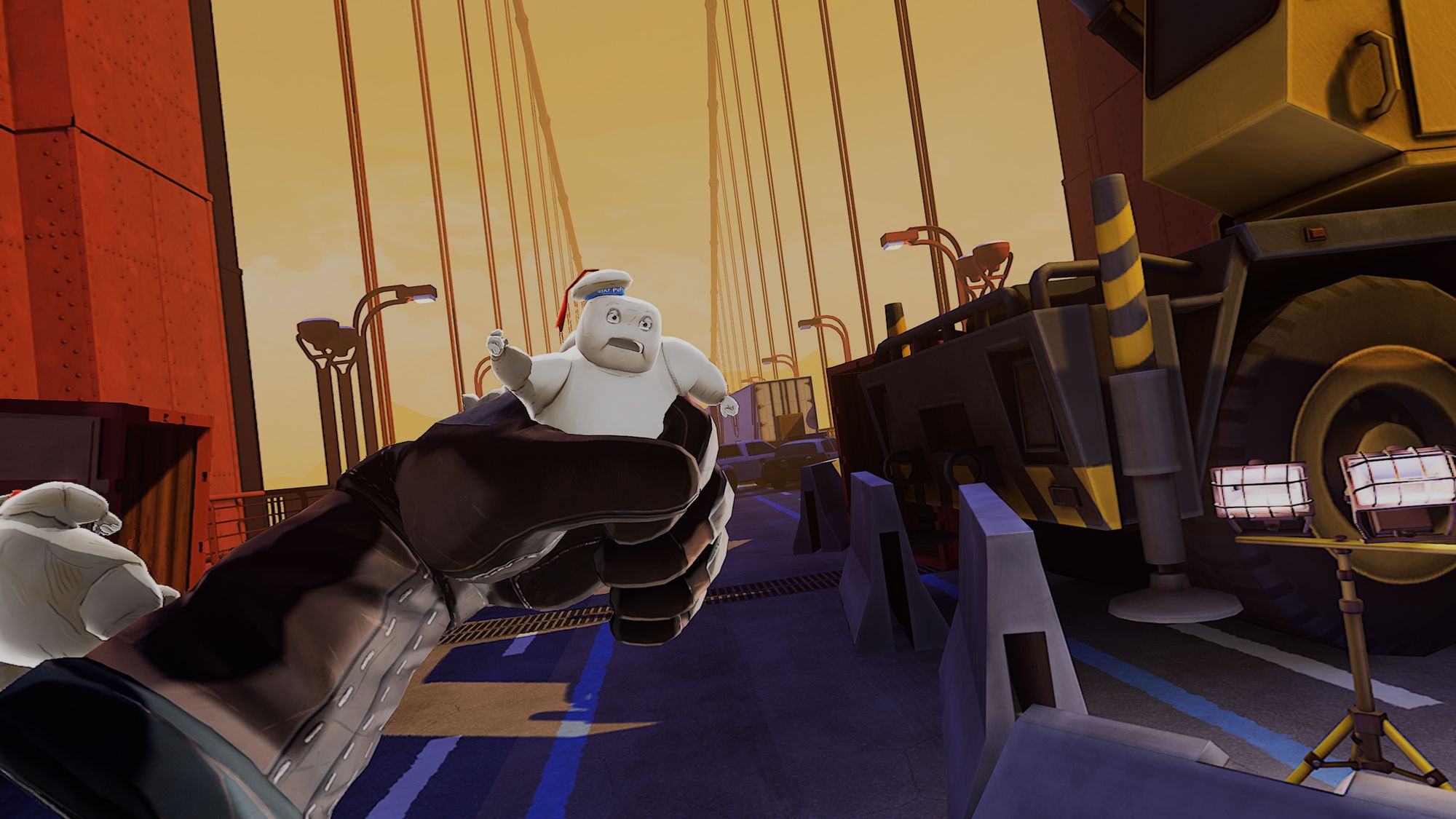
Rise of the Ghost Lord sees you team up with up to three other players to use a bunch of Ghostbusters tools, such as the famous Proton Pack, your PKE Meter and toss-able traps to track down ghosts and capture them.
Wielding the Proton Pack and attached wand is a two-handed affair, requiring you to track ghouls as they fly around the environment and sometimes hide themselves in cupboard or other pieces of level dressing. Some ghosts can be worn down by shooting and accurately tracking your stream on them until their health depletes, but others will need more tools.
Some ghosts will require you to lock on with your stream and pull your Proton Pack in the opposite direction to their movement, allowing you to drag them towards a trap that someone will need to toss onto the ground nearby. Some levels end in boss encounters, requiring all hands on deck to focus on targeting specific limbs or areas of the baddie.
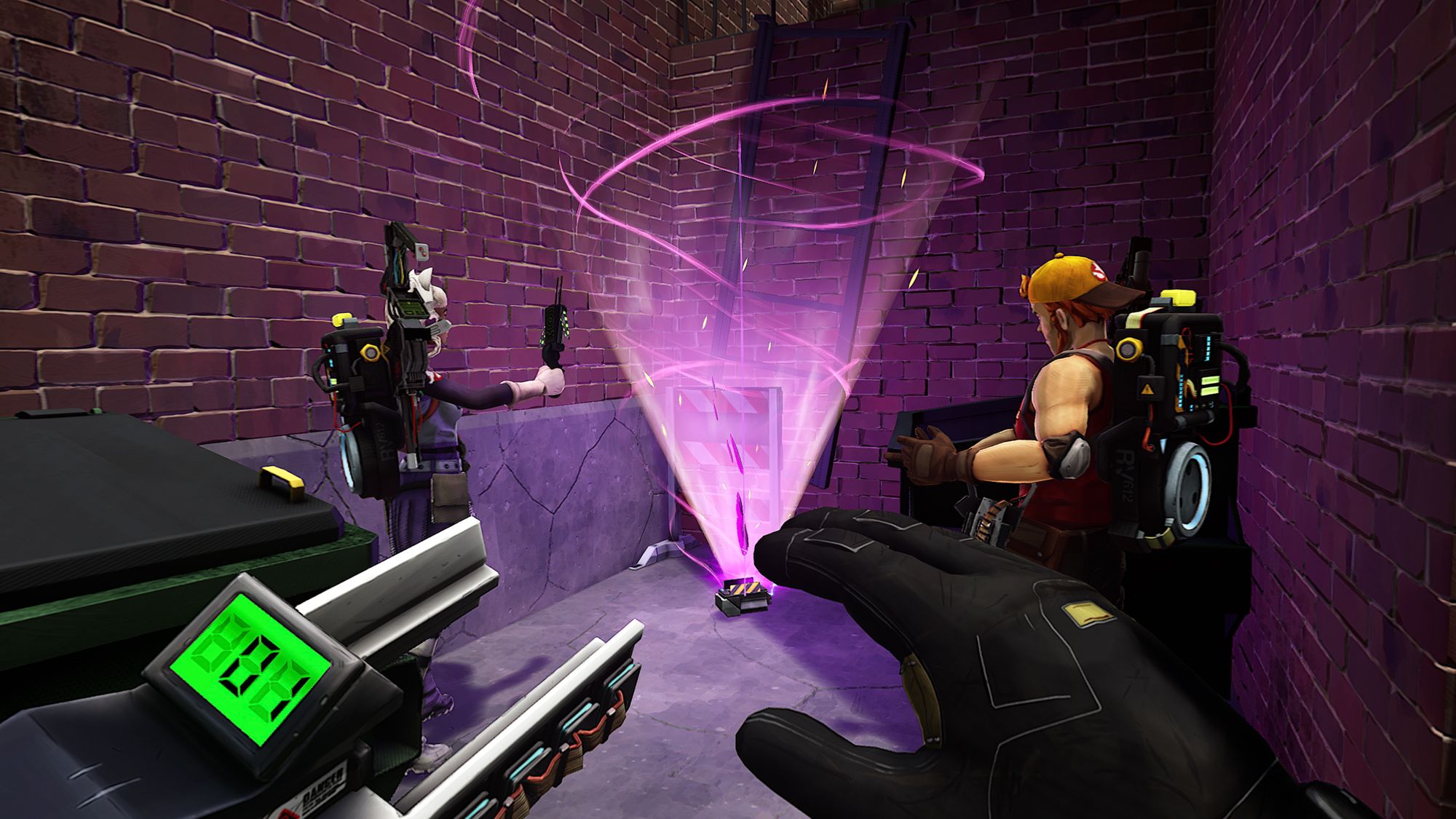
The level objectives vary – some are objective-based, such as the boss battle level that was preceded by some objective-based environmental exploration, while others are time-based, requiring you to trap/kill as many ghosts as you can within a set time limit.
Because this is a multiplayer-first experience, the 'campaign' has been designed in a way that allows players to jump in together even when they're not quite at the exact same specific progression. This isn't a straight linear experience – levels will be opened up to players gradually, giving options when squadding up while also hopefully avoiding too much repetition for those who are further ahead.
Levels can also be re-played once completed with higher difficulty options, plus the game will account for differences in player skill when matchmaking online. While Rise of the Ghost Lord will always try to match players of similar skill and progression together, it has systems in place to ensure everyone gets an appropriate challenge regardless. In the event a veteran player is matched with a relative newbie, I'm told ghosts have the ability to be more aggressive towards the former, for example.
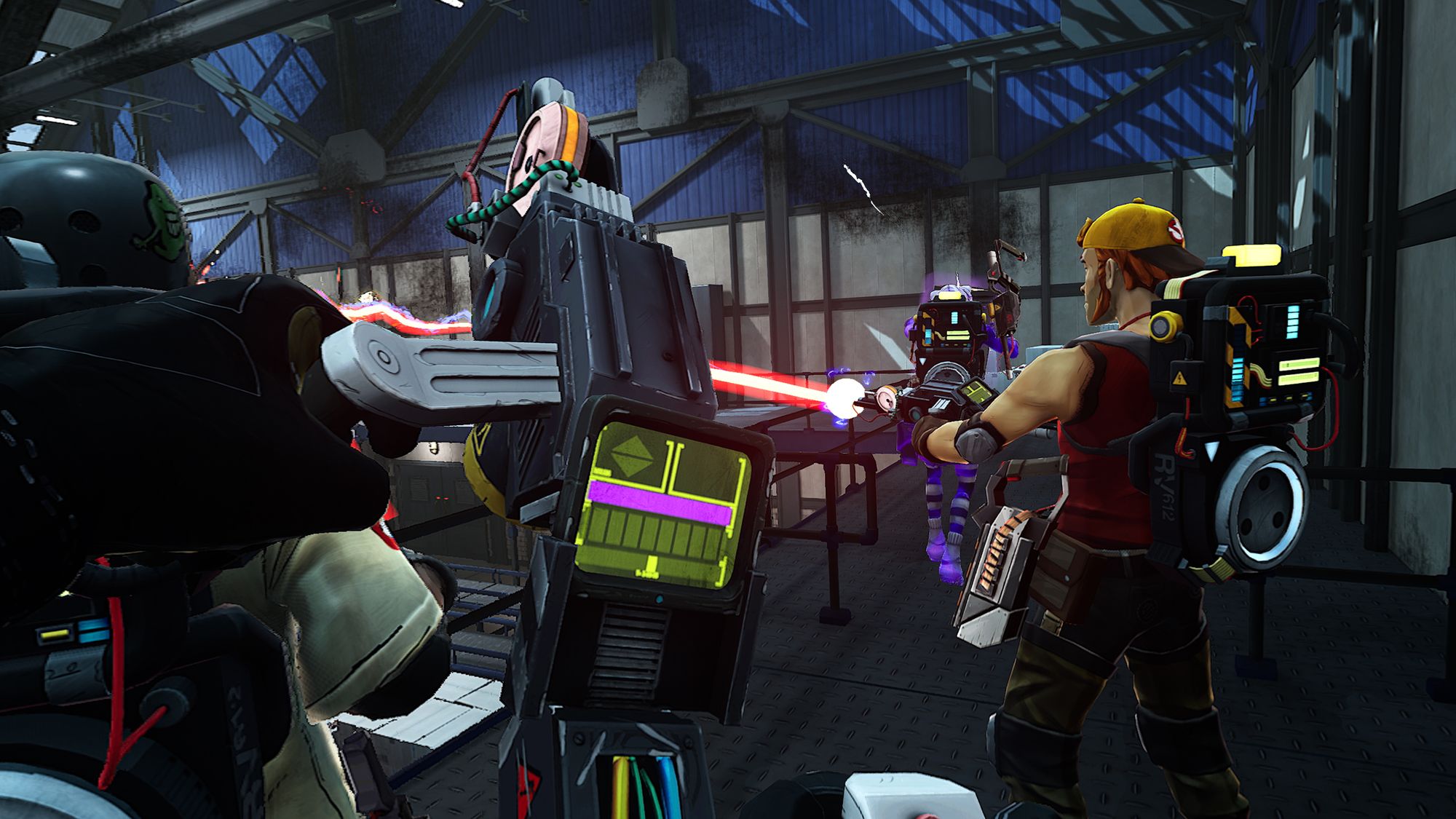
We played through a couple of levels during our demo, which amounted to an engaging arcade-like multiplayer experience. It certainly wasn't mind blowing, but it's hard to pin down specific complaints either. The fundamentals of the mechanics and gameplay loop were solid enough that I'm sure many – especially younger Ghostbusters fans – will find the offering enjoyable.
The real question: for how long? By the end of our demo session, I came away impressed but satisfied, and glad that the demo ended where it did. The final section we played through – the boss battle – started to feel a little repetitive. The nature of this campaign structure, along with the promise of future content, indicates that nDreams and SPVR are hoping this is the type of game players will come back to time and time again, across months and maybe years.
I'm not so convinced that's the case – or that the Ghostbusters franchise remains particularly relevant to the young-skewing VR demographic that this game is clearly designed for. A $200,000 million box office haul may have been enough to justify a green-lighting a sequel to Afterlife, the franchise's most recent movie entry, but it hardly holds a torch – economically or culturally – to the superhero-dominated zeitgeist of cinema in the last 10 years.
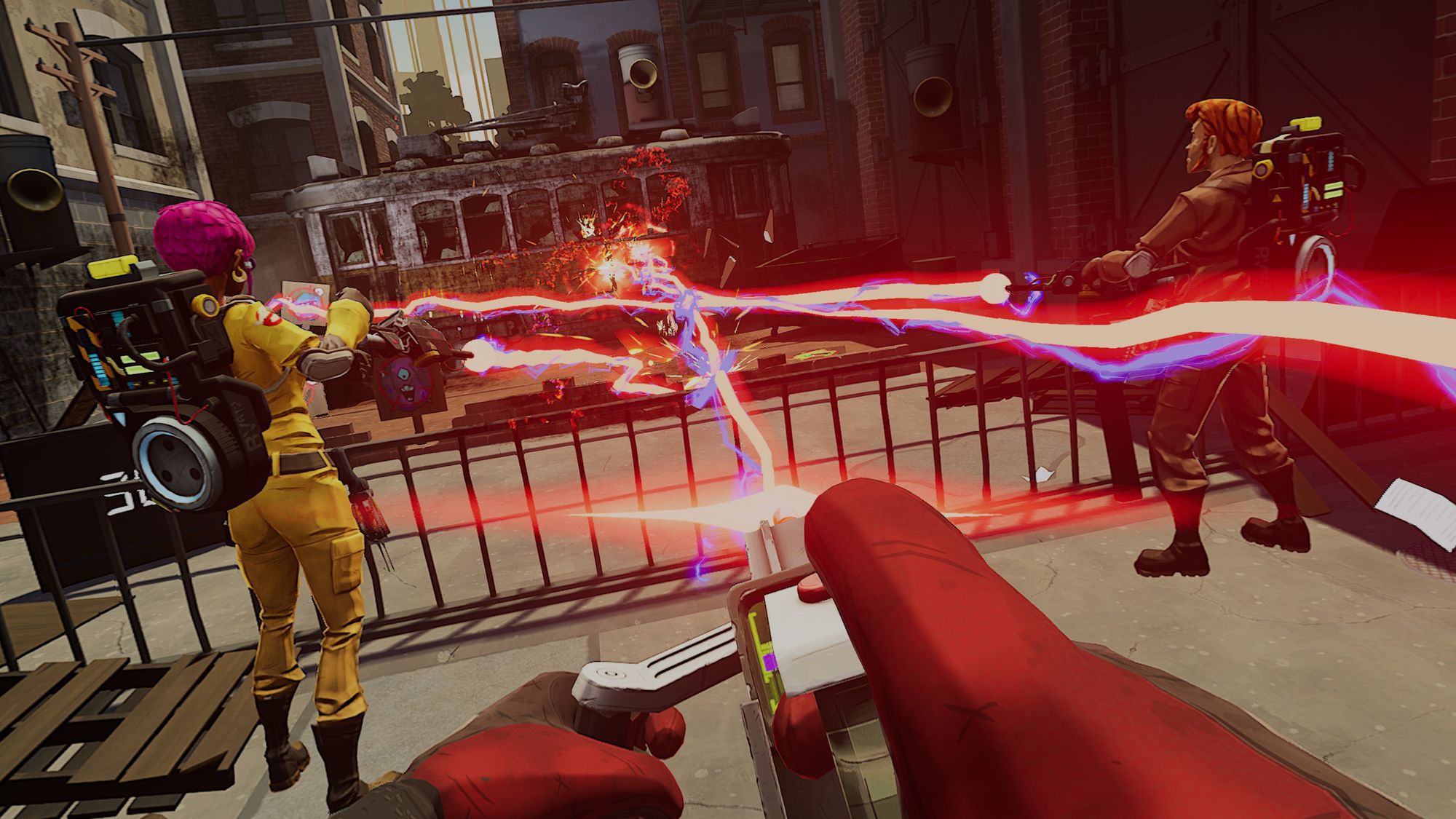
However, that doesn't also mean that Rise of the Ghost Lord won't find an audience, nor be a perfectly enjoyable game to run though on release with friends. And that's also the key here: friends. While it is possible to play through the game solo – with levels and difficulty adjusting for player count – I don't see why you would. The inclusion of a solo option is necessary for young players who might not be allowed to play online, or players who simply don't want to. However, I think most people should approach Rise of the Ghost Lord with multiplayer in mind.
It's good, then, that Rise of the Ghost Lord will not only launch same-day on PSVR 2 and Quest headsets, but supports full cross-platform play as well. That said, we played our demo entirely on PSVR 2, which is is clearly the headset that this game will shine on.
Performance on PSVR 2 was mostly reliable, with solid visuals and an art direction that is obviously designed to ensure the game's aesthetic can be scaled up and down for different headsets as needed. That said, I doubt the standalone visuals will have the same console-power sheen that was present on this PSVR 2 build. While I don't anticipate Rise of the Ghost Lord looking too downgraded on Quest, it will be definitely be an interesting comparison.
The PSVR 2 build also featured good haptic feedback on the Sense controllers and headset, alongside decent (if now fairly standard) use of adaptive triggers. Eye tracking will also be implemented for menu selection and communication, among other things, but was too buggy to use in my demo build and subsequently had to be turned off for my session.
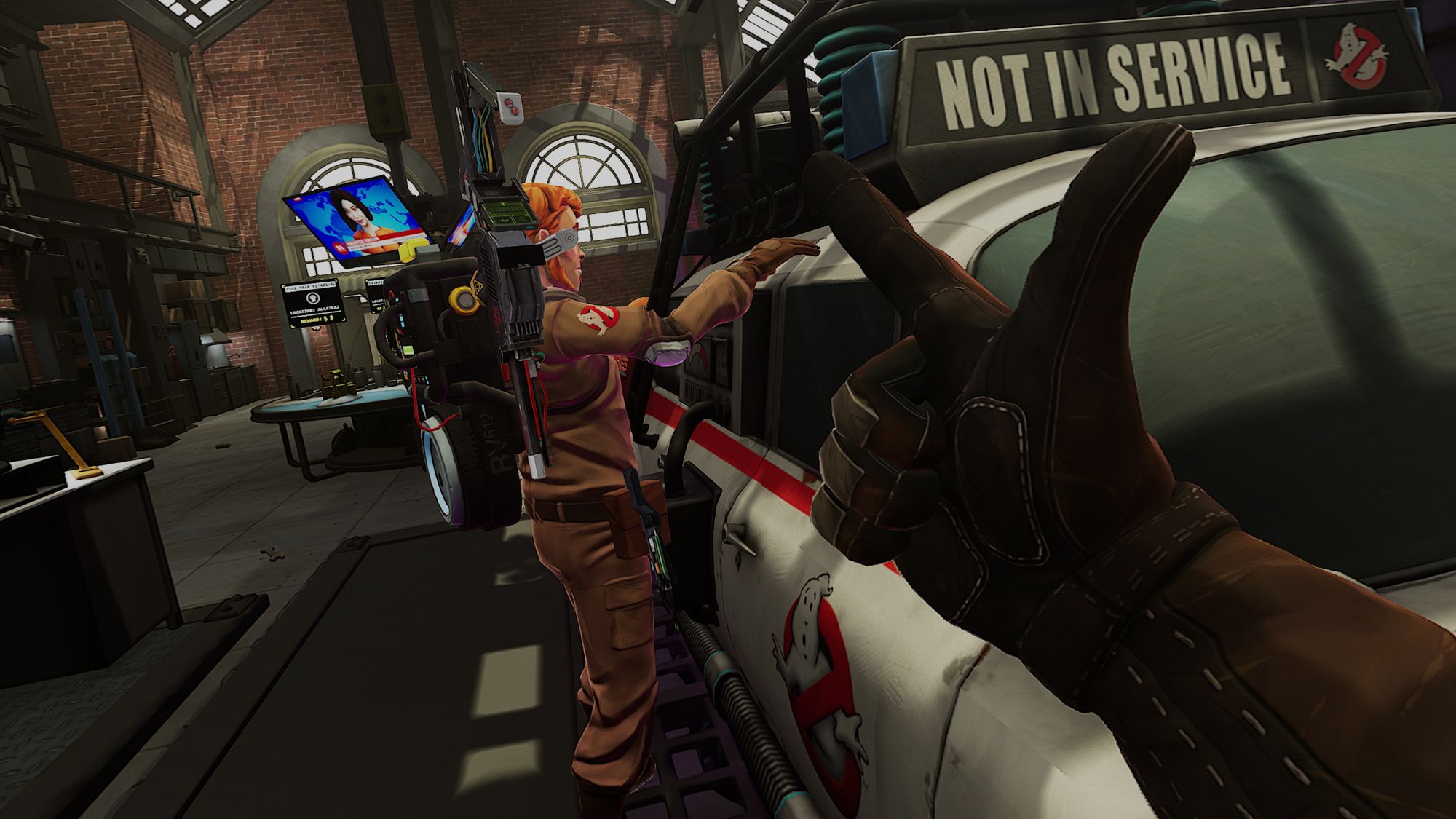
Overall, there's a solid foundation here – and even more we haven't touched on – that should make for a solid multiplayer experience on release. Whether it will have the staying power and media relevance to be the ongoing live service game that Sony and nDreams are clearly aiming towards is another question. Nonetheless, there have been many worse franchise tie-in games. Bringing a veteran VR studio like nDreams on board was a smart decision from Sony Pictures VR could have made, with huge positive impact that's evident in the game already.
We're looking forward to tracking down more ghosts when Ghostbusters: Rise of the Ghost Lord launches for PSVR 2 and Quest headsets next month.
